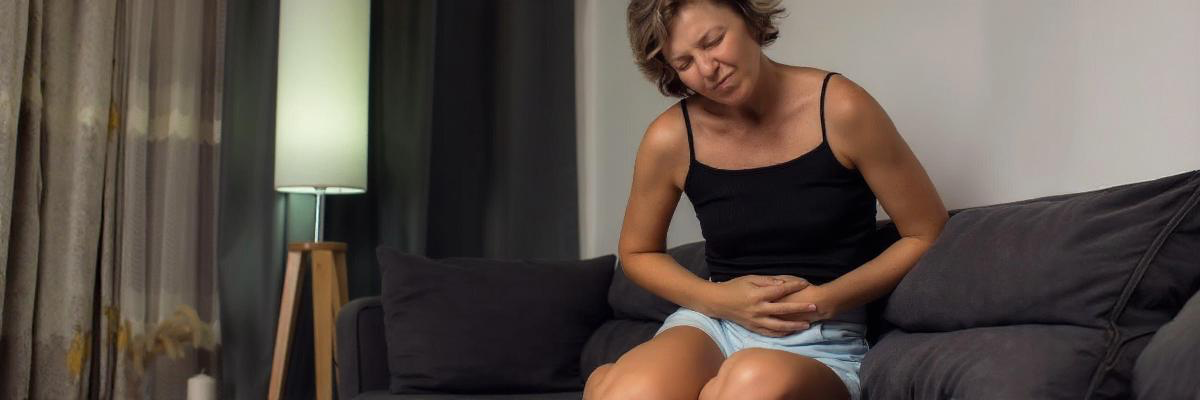Living with interstitial cystitis (IC), also known as bladder pain syndrome, can be a challenging journey marked by chronic discomfort. The hallmark symptoms of interstitial cystitis painful urination and a persistent feeling of bladder pressure, can significantly impact daily life. While there is no cure for IC, a diagnosis does not mean you have to endure constant pain. Many effective natural management strategies can help soothe your symptoms, reduce flare-ups, and restore a sense of control over your body. Understanding these approaches is the first step toward building a personalized wellness plan.
At Doral Health & Wellness, we are committed to providing comprehensive and supportive care for chronic conditions. Our team of specialists offers reliable guidance and integrated health services to help you navigate your health journey with confidence. We are dedicated to improving the well-being of our patients.
Understanding Interstitial Cystitis Painful Urination and Bladder Pressure
Interstitial cystitis is a chronic condition characterized by recurring discomfort or pain in the bladder and surrounding pelvic region. Unlike a urinary tract infection (UTI), IC is not caused by bacteria and does not respond to antibiotics. The symptoms can range from mild to severe and often fluctuate, with periods of remission followed by flare-ups. The primary symptoms include:
- Painful Urination – A burning or stinging sensation during or after urination is a classic sign of IC.
- Bladder Pressure and Pain – A constant feeling of pressure or pain in the bladder that often worsens as the bladder fills.
- Urinary Urgency and Frequency – A frequent, often overwhelming, need to urinate, even if the bladder is not full.
- Pelvic Pain – Pain can be felt in the lower abdomen, pelvis, or perineal area.
A qualified urology doctor can provide an accurate diagnosis and rule out other conditions.
Natural Management Strategies for IC Symptoms
While medical treatments are available, many individuals find significant relief by incorporating natural and lifestyle-based strategies into their daily routine. These approaches focus on identifying triggers and calming the bladder.
The Interstitial Cystitis Diet
One of the most effective tools for managing IC is dietary modification. Many patients find that certain foods and drinks can irritate the bladder and trigger symptoms of interstitial cystitis painful urination. An elimination diet is often recommended to identify personal triggers.
Common Bladder Irritants to Avoid
- Coffee and caffeinated beverages
- Alcohol
- Citrus fruits and juices
- Tomatoes and tomato-based products
- Spicy foods
- Artificial sweeteners
- Carbonated drinks
Bladder-Friendly Foods to Include
- Pears, blueberries, and melons
- Avocados and bananas
- Broccoli and other green vegetables
- Lean proteins like chicken and fish
- Oats and rice
Keeping a food diary can help you and your urology doctor track which foods cause a flare in your bladder pressure and pain.
Stress Management Techniques
Stress is a well-known trigger for IC flare-ups. The connection between the brain and bladder is strong, and emotional distress can directly translate to physical symptoms.
- Mindfulness and Meditation – Practices that calm the nervous system can help reduce bladder muscle tension and pain perception.
- Gentle Exercise – Low-impact activities like walking, gentle stretching, or yoga can reduce stress and improve pelvic blood flow without jarring the bladder.
- Deep Breathing Exercises – Slow, diaphragmatic breathing can help relax the pelvic floor muscles and ease bladder pressure.
Bladder Training and Pelvic Floor Health
- Bladder Training – This behavioral therapy involves urinating on a fixed schedule. Over time, you gradually increase the interval between voids, which can help increase bladder capacity and decrease urgency.
- Pelvic Floor Physical Therapy – A specialized physical therapist can teach you how to relax tense pelvic floor muscles, which often contribute to IC pain. This is different from Kegel exercises, which can sometimes worsen symptoms by overtightening muscles. A search for a “urology doctor near me” can often lead to referrals for qualified pelvic floor therapists.
When to Seek Professional Guidance
While natural strategies are powerful, they are most effective when part of a comprehensive care plan overseen by a medical professional. If your symptoms are severe or not improving, it is crucial to seek expert help.
Your journey should start with a comprehensive evaluation. A search for a provider in “urology in NY” can connect you with specialists who understand this complex condition. A Urologist in New York can perform diagnostic tests, such as a cystoscopy, to look inside the bladder and rule out other conditions. This is essential for confirming an IC diagnosis. Finding the “best urologist in New York” ensures you receive a care plan tailored to your specific needs, which may include a combination of natural approaches and medical treatments. The “best urologist in New York” can offer advanced therapies if lifestyle changes are not enough.
Living with interstitial cystitis painful urination and chronic bladder pressure requires a proactive approach. By adopting natural management strategies like dietary changes, stress reduction, and bladder training, you can significantly reduce your symptoms and improve your quality of life. Partnering with a skilled and empathetic urology doctor near me ensures you have the support and expertise needed to navigate this condition successfully.
For expert urological care and to develop a comprehensive management plan for interstitial cystitis, contact Doral Health & Wellness today at 1-718-365-2555 or visit us at 1797 Pitkin Avenue, Brooklyn, New York 11212. Our dedicated team is here to provide the supportive, personalized care you deserve. For general information about Doral Health & Wellness services, you can contact or email info@doralhw.org.






